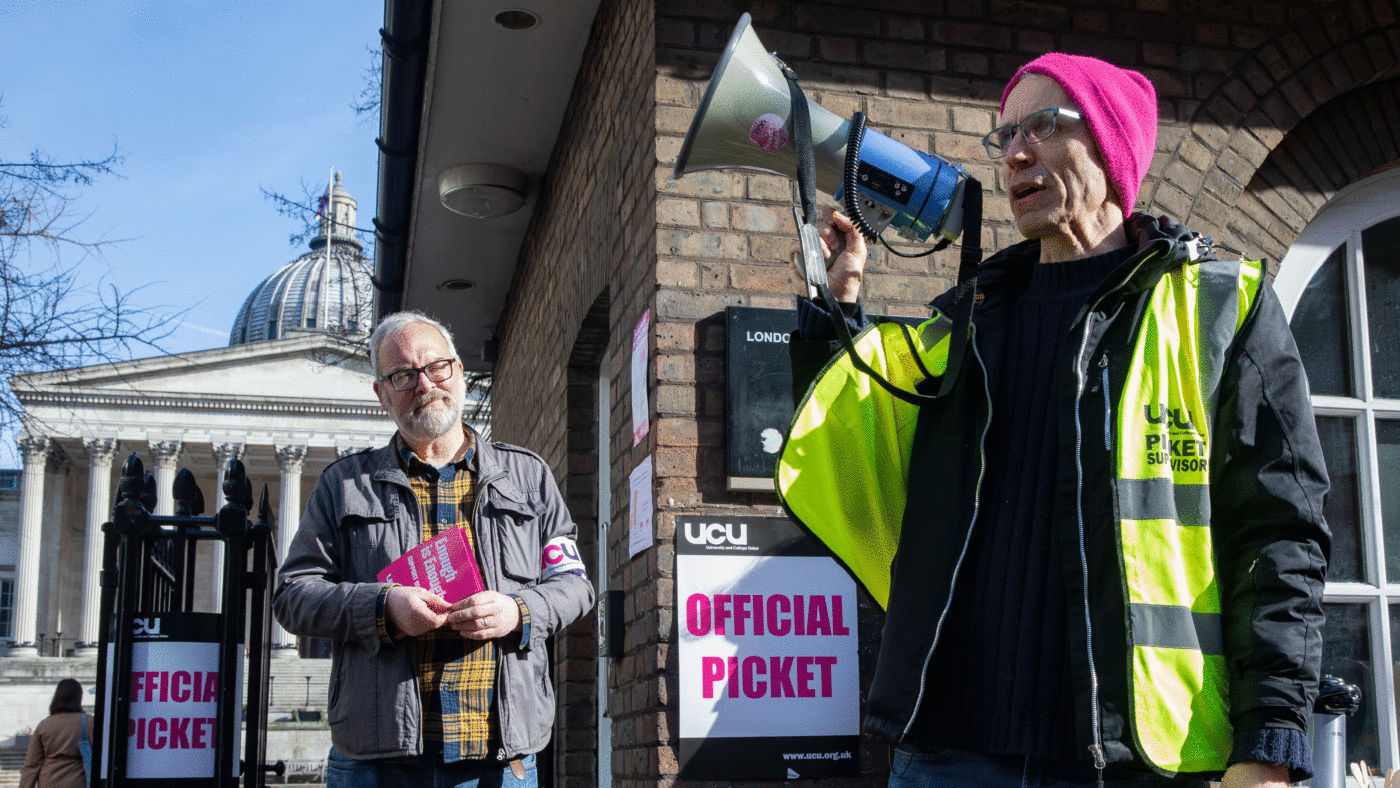Student unions have long been hotbeds of juvenile, left wing ideas – but they did once serve the nominal purpose of representing and protecting the interests of students. Now, it seems they have abandoned all pretence of delivering on their priorities, and are more interested in aligning themselves with progressive causes, even if that means going against their own members’ interests.
Take the University and College Union (UCU) strikes in February and March of this year over pay, working conditions and pension cuts. The industrial action from academics and teaching staff was met with overwhelming support from student unions, with the NUS and university-specific unions coming out in solidarity. But what about the students themselves? Cancelled lectures, lab closures and postponed exams disrupted their courses. How can the student unions claim to prioritize the people they represent if they are lobbying for the rights of another group who are actively damaging student learning?
The problem lies with how the student unions make decisions. At the University of Nottingham, a student-wide referendum was held in November to decide the union’s stance. Turnout was lacklustre, with only a tiny fraction of students bothering to vote and barely passing the cut-off for the decision to stand. They exceeded their 2.5% quota by just 150 votes. Similarly, the University of York recorded a turnout of 281 students in their January 2023 vote – that is just 1.36% of the student body.
These results are taken as a mandate to back the strikes, yet they are hardly a representative sample of student opinion. Only the most eager student unionists (campus activists who are more interested in pushing their own agenda than representing their fellow students) tend to vote.
Sometimes unions will use an outdated vote result to justify their decision. University of East Anglia is still using the results from a 2018 referendum to inform their stance on the 2022/23 action – these voters have graduated. What’s to say the student body’s opinion hasn’t changed? After all, since then the pandemic cost them almost two years of contact hours and 28% of courses are still hybrid.
A completely unrepresentative vote is one thing – but some union decisions are made by self-selecting councils with even less democratic accountability. In one council meeting at Sussex University in November 2021, not a single argument was presented against supporting the UCU strikes – a councillor even questioned why the motion had a ‘con’ section. Not surprisingly, the motion to support was unanimously passed.
Yet from a student perspective, the case for supporting lecturers’ strikes is incredibly weak. ‘We maintain the fact that staff teaching conditions are students’ learning conditions, and so we join UCU’s fight,’ was the best reasoning Warwick student union could offer. But industrial action this year caused 70,000 members to walk out of 150 universities over a period of 11 days. That’s a far more tangible impact on student learning conditions than some frustrated lecturers – not to mention a terrible return on the £9,250 a year students pay for their education.
The rise in campus activists has worrying implications. While union reps noisily advocate for vegan menus and cancel culture, the voice of the average student is drowned out. Unions are no longer centres for the discussion and resolution of student issues. Instead, they have become politicised. This has given cover for radical, and sometimes unsavoury views to flourish. Indeed last year an independent investigation found numerous instances of antisemitism within the NUS. No wonder satisfaction is so low, with only a 52% approval rating recorded in the 2022 National Student Survey Statistics.
UCU has announced marking boycotts beginning in the next few days, following a six-month renewal of their mandate, with the possibility of strikes to follow. Student unions should abstain from taking a stance and spend the time and resources trying to minimise the impact of strikes students, rather than handing out tea and coffee on the picket lines. It’s time for student unions to start acting like unions again. Only then can they start delivering for the people they represent.
Click here to subscribe to our daily briefing – the best pieces from CapX and across the web.
CapX depends on the generosity of its readers. If you value what we do, please consider making a donation.


